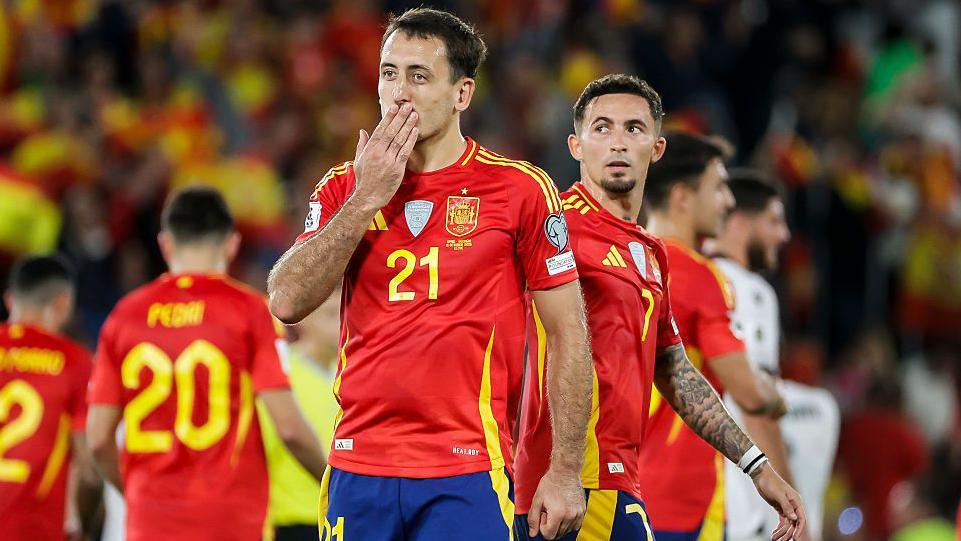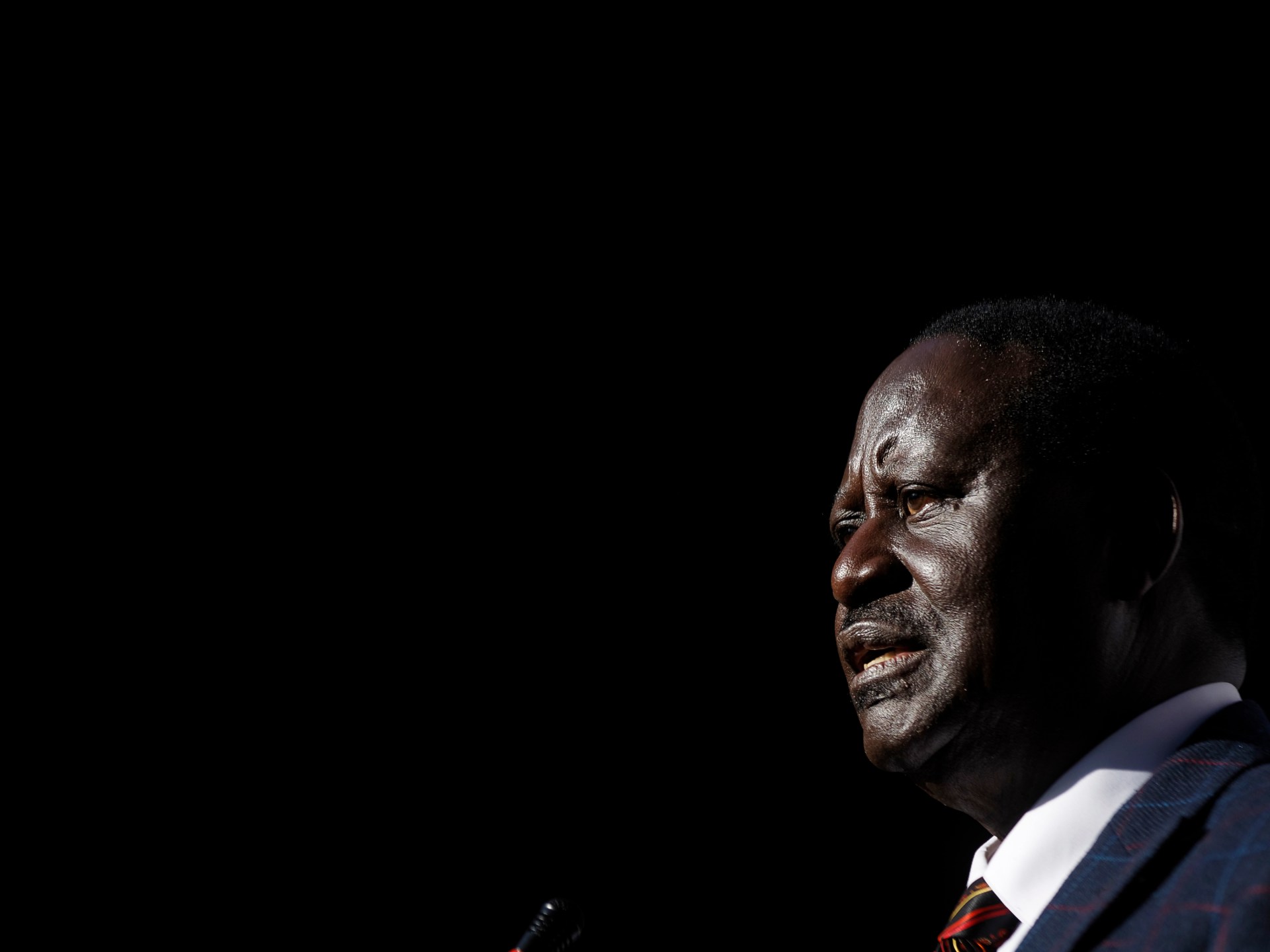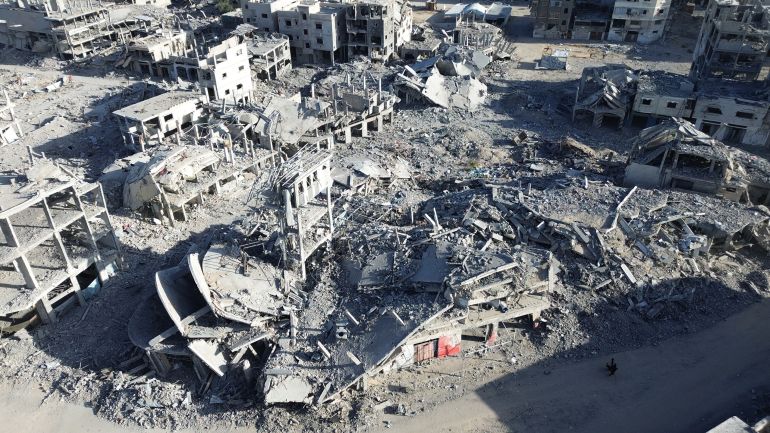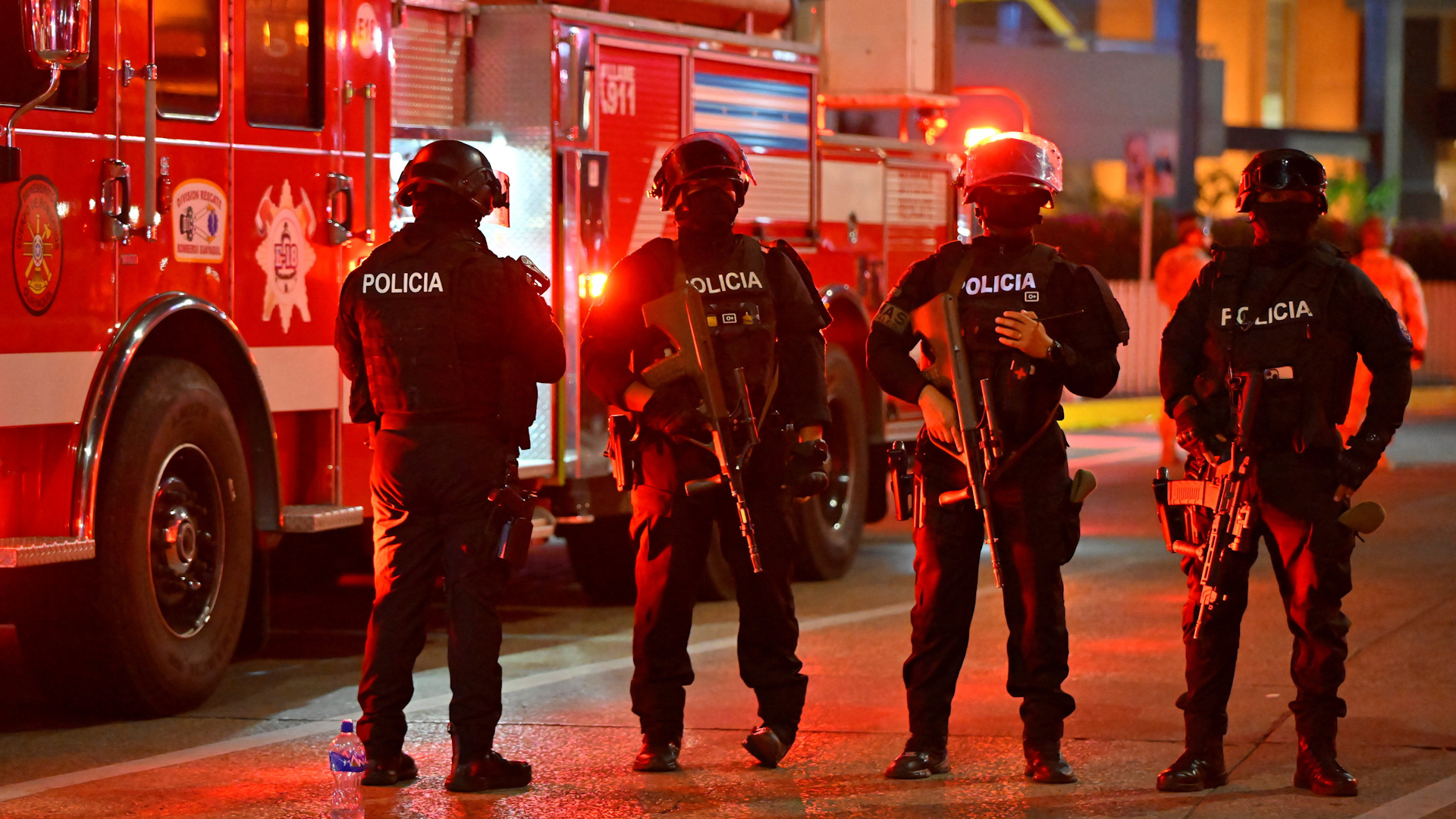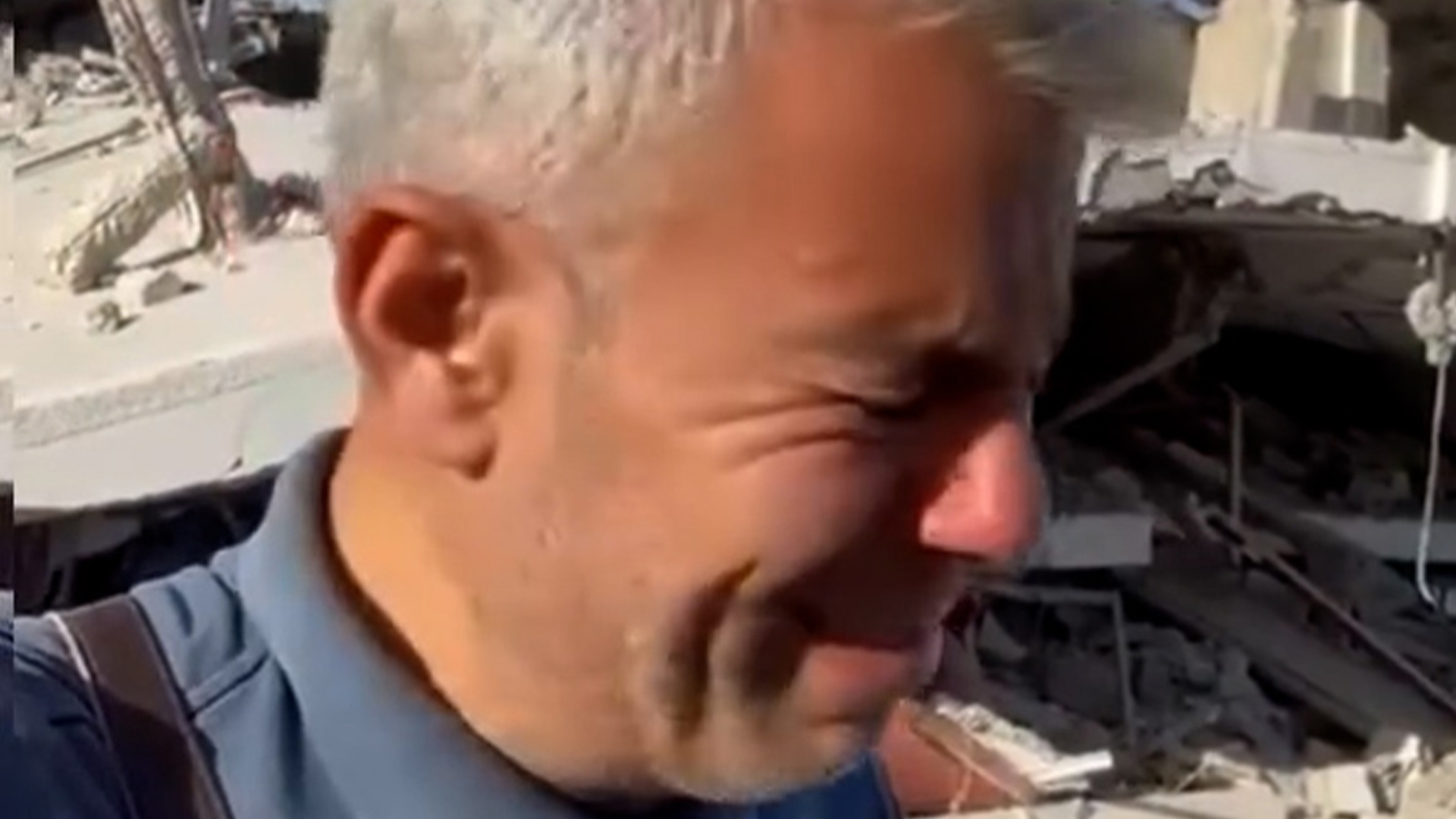- 232 Comments
England have booked their place at the 2026 World Cup and so attention turns to how they might fare in North America next summer – and how some of their rivals are looking.
Thomas Tuchel’s contract runs to the end of the tournament and the feeling has been that England have gone all out to get to this point.
Yet Tuchel believes England will be “underdogs” at the World Cup “because we haven’t won it for decades”.
Argentina and Brazil, who have both qualified, will hope the location gives them a boost.
Seven of the eight World Cups set in the Americas have been won by a South American team.
And 10 of the 11 World Cups held in Europe have been won by European teams.
Spain
Spain are the early bookmakers’ favourites to win the World Cup – and with good reason.
They were deserved winners at Euro 2024, beating England in the final.
And in teenage Barcelona winger Lamine Yamal they have one of the best players in the world.
Not counting a penalty shootout defeat in June’s Nations League final against Portugal, they have not lost a competitive game since facing Scotland in March 2023.
France

France, still managed by Didier Deschamps – who took charge in 2012 but will step down after the tournament – are aiming to reach their third World Cup final in a row.
They beat Croatia in 2018 before losing to Argentina on penalties after a 3-3 draw in probably the greatest ever final in 2022.
Key to their hopes will be Kylian Mbappe, who has hit 17 goals in 13 matches for Real Madrid and France this season.
England

There is a real hope this could be England’s year after several near misses under Gareth Southgate.
The fact the Football Association appointed the highly-decorated German on a deal just for this tournament shows how focused they are on their bid to win it.
And fortunately for Tuchel, he has a fully-firing Harry Kane. The 32-year-old has bagged 20 goals in 11 matches for Bayern Munich and England.
- 21 hours ago
- 22 hours ago
Brazil

Brazil used to be the country most synonymous with World Cup glory, lifting their fifth trophy in 2002.
But they have not reached any of the five finals since then.
And so they made a bold move and brought in serial winner Carlo Ancelotti as their first foreign head coach since 1965.
He took over in May after Dorival Junior was sacked following a 4-1 loss to arch-rivals Argentina in World Cup qualifying.
Argentina

Argentina are the defending champions, beating France on penalties in the last World Cup final in Qatar.
And they won the South American qualifying group by some way, finishing nine points above second-placed Ecuador.
All-time footballing great Lionel Messi has not yet committed to playing in the World Cup – but it would be a major surprise if he did not.
Portugal

Portugal are yet to qualify for the World Cup but will be confident of their chances as they are running away with Group F, despite drawing with Hungary on Tuesday.
There was a feeling at Euro 2024 that national great Cristiano Ronaldo, the all-time leading goalscorer in international football, was holding them back.
But since then Ronaldo – who will be 41 by next summer – has scored 13 goals in 13 games for Portugal.
Germany

Germany will have to drastically improve on recent major tournaments if they are to challenge in North America.
Since winning the 2014 World Cup they have gone out in the group stage twice and failed to get beyond the quarter-finals of a European Championship.
And they are making hard work of even reaching the World Cup, sitting above Slovakia only on goal difference in Group A.
The Netherlands

The Netherlands are in good form and have only lost once since England beat them in the Euro 2024 semi-final.
In qualifying they have 16 points from six games – with 22 goals scored and only three conceded.
Italy

It feels customary to put Italy in an article on World Cup favourites – but the data does not back it up.
Since winning the 2006 World Cup they have failed to play in one single knockout game.
They exited the groups in 2010 and 2014 and then failed to even reach the next two World Cups.
And that could yet be three in a row as they sit three points behind Group I leaders Norway and may well need the play-offs.
Related topics
- Football
- England Men’s Football Team
- 9 hours ago

- 15 August

- 16 August

